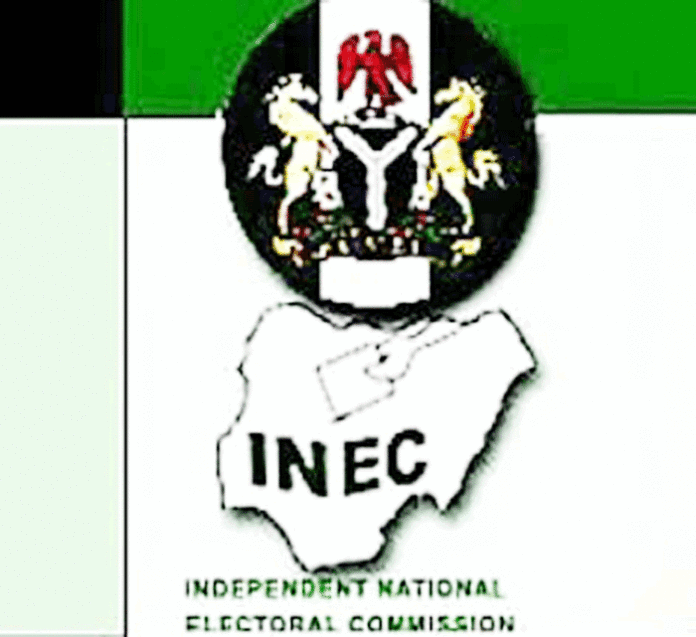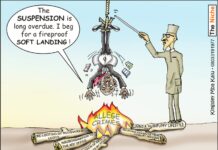After so much pussyfooting, the Independent National Electoral Commission (INEC) last week expressed its commitment to conclude suspended elections in Rivers, Imo, Kogi and Kano states not later than July 31, 2016.
The electoral umpire said it has tentatively fixed July 23 and 30 for the conclusion of all outstanding re-run elections in the country. The re-run elections, INEC claimed, were suspended after they were disrupted by violence, which forced it to pull out its staff.
The commission said it had agreed, in consultation with other political stakeholders, to hold the suspended re-run elections in Imo and Kogi States on July 23, while those of Rivers and Kano States will hold on July 30.
Yet, there was no note of finality that the elections would definitely hold. INEC Chairman, Professor Mahmood Yakubu, who made the announcement, said the commission would further engage the stakeholders, and where necessary, after due consultations, review the dates with respect to all or any of the states, adding that, “Nothing is cast in stone.”
He lamented that inconclusive elections were due to the perpetration of violence in the affected states, stating that although INEC was determined to conclude all the elections, the level of violence would determine the speed.
But the commission’s Director, Voter Education and Publicity, Oluwole Osaze-Uzzi, gave Nigerians cause to be even less hopeful when he reiterated in a statement that despite the INEC’s “commitment,” “It would not return to conduct elections or hesitate to further postpone or discontinue the suspended elections in any area where there was imminent threat to lives or to peace or security, especially where such threats were likely to lead to breakdown of law and order.”
It is instructive to note that these elections were part of the general elections of 2015, which held more than a year ago. It is also worthy of note that most of these re-run elections were supposed to be conducted within 90 days after the annulment of the original ballot. Yet, several months after, INEC is unable to conclusively deal with the issue.
The unfortunate implication is that more than a year into the new political dispensation, several constituencies have been denied their constitutionally guaranteed right of quality representation at both the National and State Houses of Assembly for no fault of theirs.
Such people have been wittingly excluded from the governance of this country and from participating in the authoritative allocation of our collective values.
The claim by the INEC helmsman that elections anywhere in the world are not automated processes as they are conducted by human beings begs the issue. Just as his contention that disruptions in one polling unit can change the tide in the results hence the commission would not improperly conclude elections is not only hollow logic, but also puerile.
The government enjoys the monopoly of the control and command of the state’s instruments of coercion. Therefore, it is the responsibility of the government led by the All Progressives Congress (APC) to provide the security that will enable INEC to carry out its constitutionally assigned duties.
So, while it may well be true that the re-run elections in Kogi, Kano and Rivers were characterised by large scale disruption and physical assault on INEC staff, the blame should be put on the doorstep of the government that has scandalously proved incapable of providing the enabling environment for violence-free polls.
When the fact that all these inconclusive polls and stand-alone elections is thrown into the mix, then the magnitude of the crisis becomes amplified and scarier.
If government cannot conduct free, fair, violence free and conclusive poll in one senatorial zone or federal constituency, what is the guarantee that it will be able to conduct general elections in 2019 when the entire country will go to the polls in one swell swoop?
But the case of Anambra Central senatorial re-run poll which INEC didn’t include in the elections to be concluded in July is even more worrisome. While the electoral umpire is quick to point at the legal quagmire entangling the poll for its reason not to conduct the election, the fact remains that INEC’s inability to play by the rules is responsible for the morass.
For no fault of theirs, and because of INEC’s sheer irresponsibility, the good people of Anambra Central senatorial zone have stayed for months without representation at the Senate.
It is worrisome that the inconclusive elections have become the norm rather than exception since the inception of the APC-led federal government and appointment of Mahmood Yakubu as INEC chairman.
This is frightening. Elections have always been conducted in Nigeria with the politically misguided leaning towards violence. But that tendency has never deterred a determined government and electoral umpire from carrying out their constitutional duties.
Nothing has changed, and nothing should, indeed, change from that norm. The Muhammadu Buhari-led government and INEC should ensure that all outstanding polls arising from the 2015 general elections are concluded. The era of tentativeness should be over.
Time for INEC to conclude all re-run polls
Advertisement














